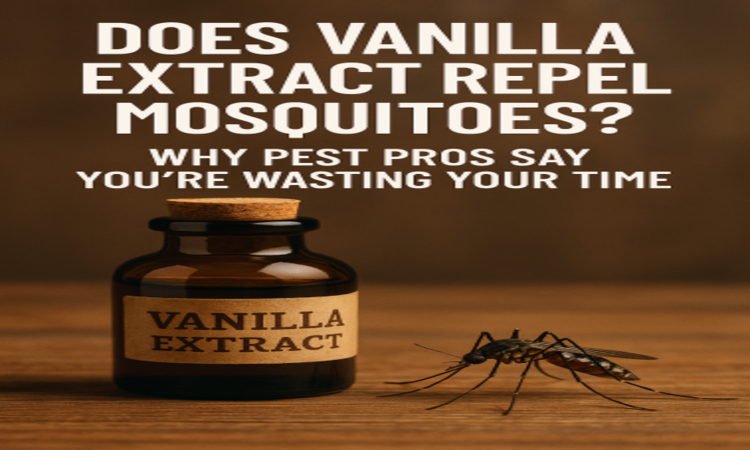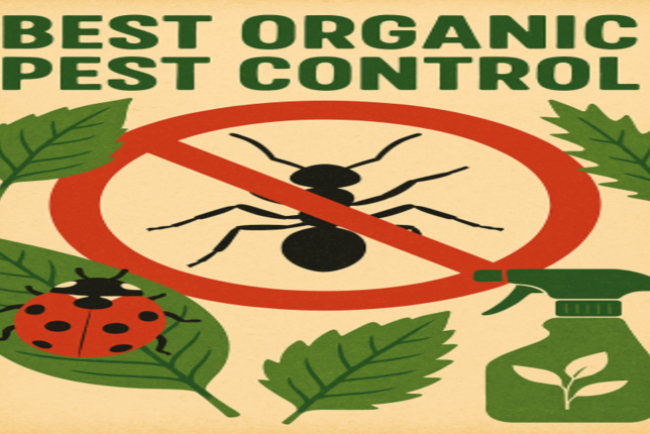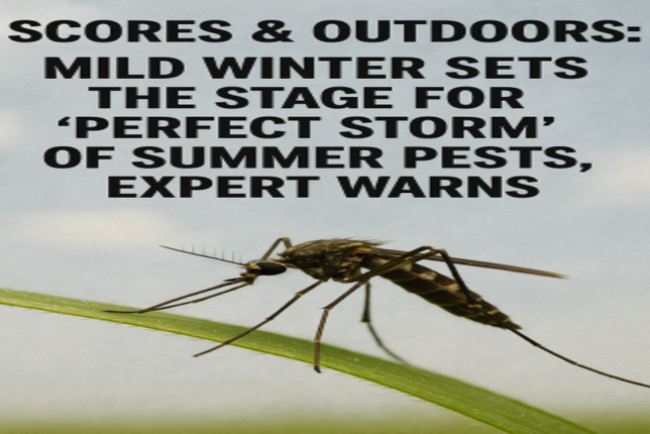Does Vanilla Extract Repel Mosquitoes? Why Pest Pros Say You're Wasting Your Time
Is vanilla extract a real mosquito repellent? Discover the truth about this popular home remedy, what pest control experts say, and safer, proven ways to protect yourself from mosquitoes.

Does Vanilla Extract Really Repel Mosquitoes? Here's What You Should Know
With mosquito season always bringing concern for bites and discomfort, many people are curious about home remedies that claim to keep mosquitoes away. One idea that pops up frequently is the use of vanilla extract as a mosquito repellent. But does it actually work?
Let’s break down what the facts show — and why pest control professionals say you might want to think twice before relying on this method.
Where Did the Idea Come From?
Vanilla extract is a pleasant-smelling kitchen staple, and its strong scent is thought by some to mask human odors like sweat and carbon dioxide — the very things that attract mosquitoes.
People often try mixing pure vanilla extract with water and applying it to exposed skin, or combining it with other essential oils. The hope is that the scent will confuse mosquitoes or drive them away.
What Pest Experts Say
Professionals in the pest control industry point out that while vanilla extract may provide a temporary barrier, it is not reliable for lasting protection.
-
Short-lived effect: The smell of vanilla may slightly confuse mosquitoes for a short time — perhaps 20 to 30 minutes — but it fades quickly.
-
Limited evidence: There’s very little scientific backing to support vanilla extract as a standalone mosquito repellent.
-
Wrong type can backfire: Artificial or imitation vanilla contains sweeteners and other additives that could actually attract insects instead of repelling them.
Understanding Vanillin's Role
Vanillin, the primary component of vanilla extract, is sometimes used in repellent formulas — but not as the main repellent. Instead, it helps extend the effectiveness of active ingredients like DEET or citronella by slowing evaporation.
So while vanillin can be helpful with other ingredients, it doesn’t do much on its own to repel mosquitoes.
Why It’s Not a Reliable Choice
While trying a homemade mosquito repellent may seem like a good natural alternative, relying on vanilla extract could leave you vulnerable to bites, especially in areas where mosquito-borne illnesses are a concern.
Pure vanilla extract is also fairly expensive, especially if it needs to be reapplied every half hour. For most people, it’s not cost-effective or practical.
Better Ways to Prevent Mosquito Bites
If you're looking to stay bite-free, here are some proven steps to take instead:
-
Use EPA-registered repellents
Products containing DEET, picaridin, or oil of lemon eucalyptus are shown to be safe and effective. -
Get rid of standing water
Mosquitoes breed in still water. Empty containers, birdbaths, clogged gutters, and anything else that collects rainwater. -
Dress smartly
Wear light-colored, long-sleeved shirts and pants when outdoors in mosquito-prone areas. -
Use screens and fans
Screens on windows and fans on porches or patios help keep mosquitoes from entering indoor spaces or landing on skin. -
Plant wisely
Some plants like lavender, citronella, and basil have natural properties that mosquitoes dislike. -
Routine inspections
Check your property for signs of mosquito activity, especially if you live near water or shaded areas with thick vegetation.













